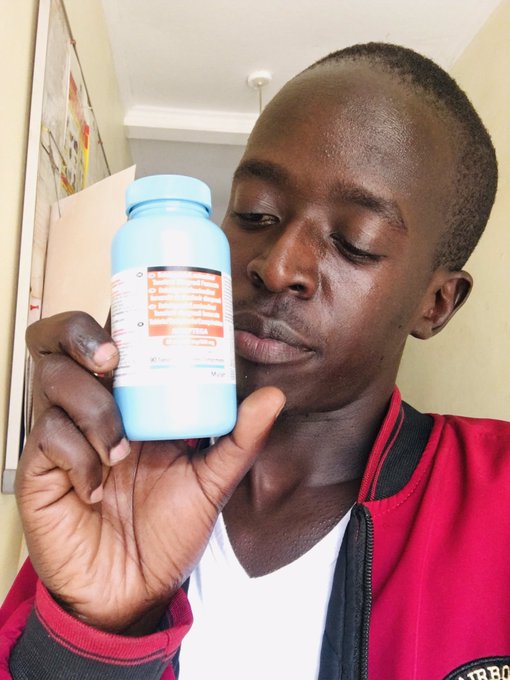Over the counter (OTC) medical services include a range of products from antibiotics and pain relievers to family planning tools and HIV self-testing kits. These self-care interventions are crucial but can pose risks if individuals lack sufficient knowledge about the products they use. This situation places significant responsibility on those behind the pharmacy counters.
In Kampala City Centre, pharmacies with a strong customer base have surprisingly demonstrated inadequacies in managing self-medication. Research indicates that in Mukono District’s rural areas, OTC medical supplies are often dispensed by inexperienced interns or volunteers. These individuals may lack essential knowledge about prescribed medications, raising concerns about their ability to provide safe care.
Many pharmacies hire recent graduates as volunteers to gain experience before obtaining licenses. A professional dispenser in a well-established pharmacy typically earns about Shs 5,500 per hour, amounting to approximately Shs 880,000 per month. In contrast, a pharmacist earns around Shs 1.5 million, translating to Shs 6,400 per hour. On the outskirts of the city, volunteers with basic pharmaceutical knowledge receive a monthly stipend of about Shs 250,000.
These dispensers are generally familiar with commonly used OTC drugs but may not be knowledgeable about medications for chronic illnesses that require prescriptions. Some are known to substitute prescribed medications with available stock to manage the short shelf life of drugs nearing expiration.
Consumers often view pharmacy staff as authoritative sources of medical advice. Consequently, they may accept recommendations without questioning changes in prescriptions or the suitability of available medicines for their conditions.
The competence of pharmacy staff is crucial in the context of self-medication, as their decisions can impact public health outcomes. This situation raises the question: who is behind your pharmacy counter?
An undercover investigation by a national newspaper over the past three weeks revealed that some pharmacy staff are not fully compliant with government regulations. This includes issuing drugs without proper prescriptions and providing misleading information, often driven by financial incentives.
The investigation included visits to well-known pharmacies in Kisaasi and Naalya. At one pharmacy, a cashier, seemingly indifferent to the reporter’s needs, quickly informed her that the requested drug was out of stock. When asked about ordering melatonin without a prescription, the cashier readily agreed, justifying the action by claiming it was part of the government’s mission to ensure medicine accessibility.
The reporter’s subsequent visit to another pharmacy along Kisaasi Road was similarly problematic. The staff recommended a related drug to clear out their existing stock, despite the reporter’s doubts about its suitability.
When attempts to purchase drugs in Mukono failed, the reporter turned to an online pharmacy. Despite the promise of around-the-clock service, the response was delayed, and the pharmacist’s availability was uncertain. An online contact advised that while most OTC medicines do not require a prescription, consulting with a doctor is recommended to avoid adverse effects.
The misuse of OTC medications is a growing concern. Many individuals self-prescribe for common ailments or share drugs for conditions like coughs, allergies, and headaches. This misuse can lead to drug dependency and resistance, as experienced by Mariam Nassejje, who struggled with a misdiagnosed autoimmune condition. Nassejje’s dependency on painkillers and subsequent drug resistance highlighted the dangers of self-medication without professional guidance.
Dr. Charles Olaro, Director of Curative Services at the Ministry of Health, emphasizes the need for careful self-care practices and discourages self-medication. He stresses the importance of confirming self-test results at health facilities and advises against purchasing antibiotics or other medications without a proper diagnosis.
Dr. Ahmed Matovu, District Health Officer of Kayunga, notes that self-care practices vary across districts and that community health workers play a crucial role in managing preventive care. The National Drug Authority (NDA) is also involved in improving pharmacy practices and ensuring proper supervision of drug shops.
According to Abiaz Rwamwiri, NDA spokesperson, financial constraints often drive treatment decisions, with many people in developing countries paying out of pocket for healthcare. He advocates for clear separation between prescription and dispensing roles to prevent medication errors.
Mr. Seth Nimwesiga from the Center for Health, Human Rights, and Development (CEHURD) supports institutionalizing self-care guidelines to align with the health system and reduce the burden on health facilities. The government is investing in self-care initiatives to improve health outcomes and reduce hospital crowding.
Earlier this year, a mobile health app named Mosmiles was launched in Masaka District to assist patients with chronic illnesses in managing their health. The app provides reminders and health information to help individuals adhere to their medication regimens.
The effectiveness of self-care interventions relies heavily on the competence and reliability of pharmacy staff. Ensuring that those behind the counter are well-trained and knowledgeable is essential for safeguarding public health.




















